

2025 2026
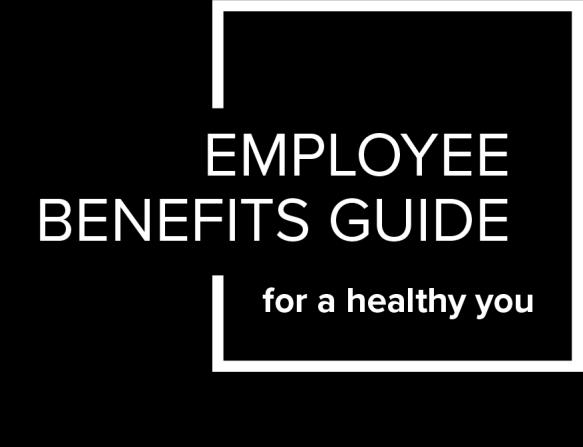



Welcome
We are pleased to offer a full benefits package to you and your eligible dependents. Read this guide to know what benefits are available to you. You may only enroll for or make changes to your benefits during Open Enrollment or when you have a Qualifying Life Event.
Availability Of Summary Health Information
Your plan offers medical coverage options. To help you make an informed choice, review each plan’s Summary of Benefits and Coverage (SBC) available by accessing www.mybenefitshub.com/cityofterrell
If you (and/or your dependents) have Medicare or will become eligible for Medicare in the next 12 months, federal law gives you more choices for your prescription drug coverage. Please see Important Legal Notices for details.
October 1, 2025 –September 30, 2026



Important Contacts
❖ City of Terrell Benefits Administrators
Higginbotham Public Sector
833-856-5161 www.mybenefitshub.com/cityofterrell
cityofterrell@hps.higginbotham.net
❖ Medical Assured Benefits Administrators
800-247-7114 www.abadmin.com
❖ Prescription Savings
Clever RX
800-873-1195 www.cleverrx.com
❖ Individual Life
5 Star
866-863-9753 www.5starlifeinsurance.com
❖ Director of Human Resources
Sue Pleging
972-551-6600 Ext 4053 spfleging@cityofterrell.org
❖ Dental / Vision / Life AD&D / Disability The Standard 800-368-1135 www.standard.com
❖ Flexible Spending Accounts (FSA)
Higginbotham 866-419-3519
flexservices.higginbotham.net
❖ Cancer / Hospital Indemnity CHUBB
888-499-0425
CWBspecialmarketservice@Chubb.com
❖ HR Generalist
Erika Riley
972-551-6600 Ext 4052
eriley@cityofterrell.org
❖ Accident / Critical Illness Aflac Group Insurance 800-992-3522 www.aflacgroupinsurance.com
❖ Telehealth Recuro
855-673-2876 www.recurohealth.com
❖ Legal Services Legal Shield
800-654-7757
www.legalshield.com

How to Enroll
Mobile Enrollment
Employee benefits made easy with your smartphone or tablet!
Scan the QR code to visit your benefit website for: LOGIN PROCESS
1 Go to www.mybenefitshub.com/cityofterrell
Or scan the QR code on the top right-hand corner.
2 Click Login.
Enter your information:
• Last name
• Date of birth
3
• Benefits resources
• Online enrollment
• Interactive tools
• And more!

4
• Last four digits of your Social Security number
Note: THEbenefitsHUB uses this information to check behind the scenes to confirm your employment status.
Once confirmed, the Additional Security Verification page will list the contact options from your profile. Select either the Text, Email, Call, or Ask Admin options to receive a code to complete the final verification step.
5 Enter the code that you receive and click Verify to begin your benefits enrollment.
Enrollment FAQ
What if I miss the enrollment deadline?
You may only enroll for or change your benefits during Open Enrollment or if you have a Qualifying Life Event.
Is there an age limit for dependents to be covered under my benefits?
You may cover dependents up to age 26 on most benefit plans, but there are exceptions. See the Eligibility section for more details.
Where do I find benefit summaries and forms?
Access https://mybenefitshub.com/cityofterrell and click on the benefit plan you need (i.e., Dental).
How do I find an in-network provider?
Access https://mybenefitshub.com/cityofterrell and click on the benefit plan for the provider you need to find.
When will I get my ID cards?
If the medical carrier provides ID cards and there is a plan change, new cards usually arrive within four weeks of your effective date. If there are no plan changes, a new card may not be issued.
You may not need a card for dental and vision plans. Simply give your provider the insurance company’s name and phone number to verify benefits. You can also print atemporary card by visiting the insurance company’s website or mobile app
Benefit questions?


Email cityofterrell@hps.higginbotham.net
Important Limitations and Exclusions Information
The following limitations and exclusions may apply when obtaining coverage as a married couple or for your dependents.
Can I cover my family — a spouse or a dependent — as dependents on my benefits if we work for the same employer?
Some benefits may not allow you to do this if you work for the same employer. Review the applicable plan documents, contact Higginbotham Public Sector, or contact the insurance carrier for spouse and dependent eligibility.
Are there FSA/HSA limitations for married couples?
Yes, generally. Married couples may not enroll in both a Flexible Spending Account (FSA) and a Health Savings Account (HSA). If your spouse is covered under an FSA that reimburses for medical expenses, then you and your spouse are not HSA-eligible – even if you would not use your spouse’s FSA to reimburse your expenses. However, there are some exceptions to the general limitation for specific types of FSAs. Contact the FSA and/or HSA provider before you enroll or reach out to your tax advisor for further guidance.
Disclaimer: You acknowledge that you have read the limitations and exclusions that may apply to obtaining spouse and dependent coverage, including limitations and exclusions may apply to enrollment in Flexible Spending Accounts and a Health Savings Account as a married couple. You, the enrollee, shall hold harmless, defend, and indemnify Higginbotham Public Sector, LLC from any and all claims, actions, suits, charges, and judgments whatsoever that arise out of your enrollment in spouse and/or dependent coverage, including enrollment in an FSA and HSA.
Eligibility
Who is Eligible for Benefits
You are eligible for coverage if you are a regular, full-time employee. You may only enroll for coverage when:
• You are a new hire
• It is Open Enrollment (OE)
• You have a Qualifying Life Event (QLE)
See Important Exclusions and Limitations for details
New Hire
Who is Eligible
• A regular, full-time employee
working an average of 20 hours per week
When to Enroll
• Enroll by the deadline given by Human Resources
When Coverage Starts
• First of the Month following the date of hire
Employee
Who is Eligible

Dependent(s)
Who is Eligible
• A regular, full-time employee working an average of 20 hours per week
When to Enroll
• Enroll during OE or when you have a QLE
When CoverageStarts
• You must be actively at work on the plan effective date for new benefits to be effective
• QLE: Ask Human Resources
• Your legal spouse
• Child(ren) under age 26, regardless of student, dependency, or marital status
• Child(ren) over age 26 who are fully dependent on you for support due to a mental or physical disability and who are indicated as such on your federal tax return
When to Enroll
• You must enroll the dependent(s) during OE or when you have a QLE
• When covering dependents, you must enroll for and be on the same plans
• Dependents cannot be double-covered by married spouses within the same employer, as both employees and dependents.
When Coverage Starts
• Based on OE or QLE effective dates
About Your Coverage Effective Date
You must be Actively at Work on the date your coverage becomes effective. Your coverage must be in effect for your spouse’s and eligible children’s coverage to take effect. See plan documents for specific details.
Qualifying Life Events
You may only change coverage during the plan year if you have a Qualifying Life Event, such as:

Marriage
Divorce
Legal separation
Annulment

Birth Adoption
Placement for adoption
Change in benefits eligibility
Death

Undergoing FMLA, COBRA event, court judgment, or decree
Becoming eligible for Medicare, Medicaid, or TRICARE
Receiving a Qualified Medical Child Support Order

Gain or loss of benefits coverage
Change in employment status affecting benefits
Significant change in cost of spouse’s coverage
You have 30 days from the event to notify your Human Resources department and complete your changes. You may need to provide documents to verify the change.
Additional Medical Assistance
Your medical plan offers benefits for retail and mail order prescription drugs. Use in-network pharmacies to get your plan’s highest level of benefits. Both the medical and drug deductible and out-of-pocket expenses are the same. All benefits including prescription drug benefits apply to the plan’s overall deductible and outof-pocket maximum.
Keep your prescription drug costs down:
• Fill your prescriptions at an in-network pharmacy
• Ask your doctor if a generic drug is an option
• Use mail order for maintenance drugs
• Use the plan’s specialty pharmacy service for specialty drugs




ZERO
• Your employer partners with ZERO to provide you and your dependents with options! Hundreds of medical services and procedures that always cost you $0.
• Chat Live: www.zero.health
• Call: (855) 816-0001
Diathrive Health
• Free and unlimited Insulin pen needles!
• Glucose testing supplies
• Diabetes education
• Clinical support from their health advisors
• Questions? Call Diathrive customer support today at (866) 878-7477
• Support@diathrive.com
Clever RX Benefit
• With Clever RX, you never have to overpay for prescriptions. When you use the Clever RX card or app, you get up to 80% off prescription drugs, discounts on thousands of medications, and usage at most pharmacies nationwide.
• Download the app, use the zip code to find the pharmacy with the best prices.
• Group: 1085 Member ID: 6572
• Questions? Call Customer Service at (800)873-1195.
Telemedicine
Your benefit coverage offers access to quality telehealth services. Connect anytime day or night with a board-certified doctor via your mobile device or computer for free or for the same or less cost than a visit to your regular physician.
While telemedicine does not replace your primary care physician, it is a convenient and cost-effective option when you need care and:
• Have a non-emergency issue and are considering an after-hours health care clinic, urgent care clinic, or emergency room for treatment
• Are on a business trip, vacation, or away from home
• Are unable to see your primary care physician
Watch and learn more!
Registration is Easy Register today so you are ready to use this valuable service when and where you need it.



Visit www.recurohealth.com
Call 855-673-2876
Download the app to your mobile device
When to Use Telemedicine
Use telemedicine for minor conditions such as:
• Sore throat
• Headache
• Stomachache
• Cold
• Flu

• Mental health issues
• Allergies
• Fever

• Urinary tract infections
Do not use telemedicine for serious or life-threatening emergencies.
Flexible Spending Accounts
ANNUAL

$5,000 if filing jointly or head ofhousehold and $2,500 if married filing separately.
You are entitled to the full election from day one of the plan year.
Higginbotham Portal
The Higginbotham Portal provides information and resources to help you manage your FSAs to:
• Access plan documents and account information.
• Update your personal information.
• Look up qualified expenses.
• Submit claims.
Register on the Higginbotham Portal
Visit https://flexservices.higginbotham.net, then click Get Started and follow the instructions.
• Enter your Social Security number with no dashes or spaces as your Employee ID.
• Follow the prompts to navigate the site.
• If you have any questions or concerns, contact Higginbotham:
• Call 866-419-3519
• Email flexclaims@higginbotham.net
• Fax 866-419-3516

Watch and learn more!
Higginbotham Flex MobileApp
Download the Higginbotham app to easily access your Health Care FSA information.
• View your account balance
• View debit card activity
• File a claim and upload receipts
• Set up notifications
Register on the Higginbotham Portal first to access the mobile app, and use the same username and password for both.
The Higginbotham Health Care FSA debit card gives you immediate access to your Health Care FSA funds. You do not need to file a claim when you make a purchase with your debit card. You can only use this debit card for qualified health care expenses. If you use the debit card to pay for anything other than a copay amount, you must submit an itemized receipt or an Explanation of Benefits (EOB). If you do not submit a receipt, you will be asked to do so. You have 60 days to submit a receipt before your debit card is suspended.
Qualified HSA and FSA Expenses


The products and services listed below are examples of medical expenses eligible for payment under your Health Care FSA, and/or Health Savings Account This list is not all-inclusive; additional expenses may qualify, and the items listed are subject to change in accordance with IRS regulations.
Please refer to IRS Publication 502 Medical and Dental Expenses at www.irs.gov for a complete description of eligible medical and dental expenses.
Abdominal supports
Acupuncture
Ambulance
Anesthetist
Arch supports
Artificial limbs
Blood tests
Braces
Cardiographs
Chiropractor
Crutches
Dental treatment
Dentures
Dermatologist
Diagnostic fees
Eyeglasses
Gynecologist
Healing services
Hearing aids and batteries
Hospital bills
Insulin treatment
Lab tests
Metabolism tests
Neurologist
Nursing
Obstetrician
Operating room costs
Ophthalmologist/Optician/ Optometrist
Orthopedic shoes
Orthopedist
Osteopath
Physician
Postnatal treatments
Prenatal care
Prescription medicines
Psychiatrist
Therapy equipment
Wheelchair
X-rays
Dental Coverage
Our dental plan helps you maintain good oral health through affordable options for preventive care, including regular checkups and other dental work.
DPPO Plan
Two levels of benefits are available with the DPPO plan:in-network and out-of-network. You may select anydental provider for care, but you will pay less and get thehighest level of benefits with in-network providers. You could pay more if you use an out-of-network provider.



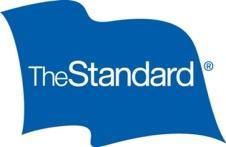

Vision Coverage
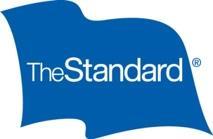
Our vision plan offers quality care to help preserve your health and eyesight. Regular exams can detect certain medical issues such as diabetes and high cholesterol, in addition to vision and eye problems.
You may seek care from any vision provider, but the plan will pay the highest level of benefits when you see in-network providers
•
• Single vision
• Lined bifocals
• Lined trifocals
• Standard progressive
• Polycarbonate lenses

•
•



Life and AD&D Insurance
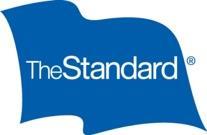
Group term life is the least expensive way to buy life insurance. Life and Accidental Death and Dismemberment (AD&D) insurance is important to your financial security, especially if others depend on you for support or vice versa.
With Life insurance, you or your beneficiary(ies) can use the coverage to pay off debts such as credit cards, loans, and bills.
AD&D coverage provides specific benefits if an accident causes bodily harm or loss (e.g., the loss of a hand, foot, or eye). If death occurs from an accident, 100% of the AD&D benefit would be paid to you or your beneficiary(ies).
Basic Life andAD&D
Basic Life and AD&D insurance are provided at no cost to you. You are automatically covered up to 1 times your Basic annual earnings to a maximum of $200,000.
**Benefits are reduced at age 70.
Designating a Beneficiary
A beneficiary is the person or entity you elect to receive the death benefits of your Life and AD&D insurance policies. You can name more than one beneficiary, and you can change beneficiaries at anytime. If you name more than one beneficiary, you must identify how much each beneficiary will receive (e.g., 50% or 25%).
A full plan summary is available on your benefits website.

Voluntary Life Insurance
You may purchase additional Life and AD&D insurance for you and your eligible dependents. If you decline Voluntary Life and AD&D insurance when first eligible or if you elect coverage and wish to increase your benefit amount at a later date, Evidence of Insurability (EOI) – proof of good health – may be required before coverage is approved. You must elect Voluntary Life and AD&D coverage for yourself to elect coverage for your spouse or children. If you leave the company, you may be able to take the insurance with you.
• Increments of $5,000 up to 100% of the 100% of the employee’s amount • Guaranteed Issue: $30,000
Individual Life Insurance
The Family Protection Plan Group Level Term
Life Insurance from 5STAR Life Insurance helps protect your family. You do not have to elect coverage for yourself. You may elect coverage for:
• Your spouse
• Your financially independent children and grandchildren (14 days to age 26).
Coverage lasts until age 121 for all insured, so your family can be protected into their retirement years as long as your premiums are paid.
This coverage is portable, which means you may continue with no loss of benefits or increase in cost if you terminate employment after the first premium is paid. You will simply be billed directly.
Individual Life Advantages
• Customizable for you and your family
• Terminal Illness Acceleration of Benefits
• Portable
• Family Protection
• Quality of Life Benefit Acceleration (not available for children or at ages 66-70)

Buy When You Are Young!
Buying life insurance when you are younger allows you to take advantage of lower premium rates while you are generally healthy. This allows you to buy more insurance coverage for the future and still pay less than you would if you were older and trying to buy the same coverage amount. This is especially important if you have dependents who rely on your income, or you have debt that would need to be paid off.


Watch and learn more!
Disability Insurance

Traditional disability insurance provides partial income protection if you are unable to work due to a covered accident or illness.
Disability coverage pays a percentage of your monthly salary for a covered disability or injury that prevents you from working for an extended period of time. Benefits begin after an elimination period and continue while you are disabled up to a maximum benefit period. Full plan summaries and rates are available on your benefits website.
Short Term Disability FAQ
Short Term Disability (STD)benefits can be beneficial if you find yourself unable to work for a short period due to a non-work-related injury or illness. STD insurance provides cash benefits based on a percentage of your pre-disability earnings, paid weekly during your time on a disability claim. You have the flexibility to use these funds as you wish.
How is STD different than Workers’ Compensation?
Workers’ Compensation applies to a job-related injury or illness. STD benefits may apply if you are unable to work due to pregnancy or non-work-related illness or injury.
Will I get all of my disability benefit?
Your disability benefit may be reduced by other income you receive or are eligible to receive due to your disability. Some of these income sources may include Social Security disability insurance, Workers’ Compensation, unemployment benefits, etc. Some limitations and exclusions may apply so read your plan documents for details.
How do I apply for Short TermDisability?
Contact your Human Resources department to begin STD benefits
Long Term Disability FAQ
How can LongTerm Disability (LTD) benefits help me?
Disability insurance pays cash benefits for covered injuries and illness if you are not able to work for an extended period of time due to a chronic injury or illness. It provides a percentage of pre-disability earnings when you are out on a disability claim. You can use the money however you see fit.
When do disability benefits begin?
The start of your disability insurance depends on the specifics of your policy and your disability. LTD usually begins after a pre-determined waiting period (such as 90 to 180 days from the onset of the disability).
Will I get all of my disability benefit?
You will get a percentage of your income – typically 60%. However, your disability benefit may be reduced by other income you receive or are eligible to receive due to your disability, such as unemployment benefits. Some limitations and exclusions may apply so read your plan documents or contact Human Resources for details.
How long will the disability benefit last?
Refer to your specific policy for term limits. Some policies pay benefits until age 65, while others have afixed number of years.
What else is included with my disability coverage?
Your policy includes worldwide emergency travel assistance if you or a family member needs help anywhere in the world. See plan documents for details.

Short Term Disability Insurance
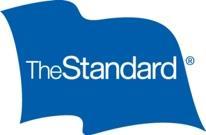
Disability insurance provides partial income protection if you are unable to work due to a covered accident or illness. We provide Short Term Disability (STD) for you to purchase.
Voluntary Short-Term Disability
Voluntary STD coverage pays a percentage of your weekly salary if you are temporarily disabled and unable to work due to an illness, pregnancy or non-work related injury. STD benefits are not payable if the disability is due to a job- related injury or illness. If a medical condition is jobrelated, it is considered Workers’ Compensation, not STD.
VOLUNTARY SHORT TERM DISABILITY
Short Term Disability FAQ
How canSTD benefits help me?
STD insurance pays cash benefits for covered injuries and illness if you are not able to work for a short period of time due to a non-work-related injury or illness. It provides a percentage of pre-disability earnings on a weekly basis when you are out on a disability claim. You can use the money however you see fit.
How is STD different than Workers’ Compensation?
Workers’ Compensation applies to a job-related injury or illness STD benefits may apply if you are unable to work due to pregnancy or non-work-related illness or injury
Will I get all of my disability benefit?
Your disability benefit may be reduced by other income you receive or are eligible to receive due to your disability. Some of these income sources may include Social Security disability insurance, Workers’ Compensation, unemployment benefits, etc. Some limitations and exclusions may apply so read your plan documents for details.
How do I apply for Short Term
Disability?
Contact your Human Resources department to begin STD benefits


Long Term Disability Insurance
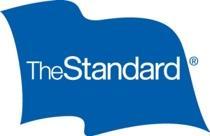
Disability insurance provides partial income protection if you are unable to work due to a covered accident or illness. We provide Long Term Disability (LTD) at no cost to you.
Long Term Disability
LTD insurance pays a percentage of your monthly salary for a covered disability or injury that prevents you from working for more than 90 days. Benefits begin at the end of an elimination period and continue while you are disabled up to maximum benefit period
LONG TERM DISABILITY

Long Term Disability FAQ
How canLTD benefits help me?
LTD insurance pays cash benefits for covered injuries and illness if you are not able to work for an extended period of time due to a chronic injury or illness. It provides a percentage of pre-disability earnings on amonthly basis when you are out on a disability claim. You can use the money however you see fit.
When do LTD benefits begin?
The start of your LTD insurance depends on the specifics of your policy and your disability. LTD usually begins after a pre-determined waiting period (such as 90 to 180 days from the onset of the disability).
Will I get all of my disability benefit?
You will get a percentage of your income – typically 60%. However, your disability benefit may be reduced by other income you receive or are eligible to receive due to your disability, such as unemployment benefits. Some limitations and exclusions may apply so read your plan documents or contact Human Resources for details.
How long will the LTD benefits last?
Refer to your specific LTD policy for term limits. Some policies pay benefits until age 65, while others have afixed number of years

Hospital Indemnity Insurance
The Hospital Indemnity plan helps you with the high cost of medical care by paying you a cash benefit when you have an inpatient hospital stay. Unlike traditional insurance which pays a benefit to the hospital or doctor, this plan pays you directly. It is up to you how you want to use the cash benefit. These costs may include meals, travel, childcare or eldercare, deductibles, coinsurance, medication, or time away from work. See the plan document for full details.
CHUBB - HOSPITAL INDEMNITY INSURANCE


Accident Insurance
Accident insurance provides affordable protection against a sudden, unforeseen accident. The Accident plan helps offset the direct and indirect expenses resulting from an accident such as copayments, deductible, ambulance, physical therapy, childcare, rent, and other costs not covered by traditional health plans. See the plan document for full details.
AFLAC - ACCIDENT INSURANCE
•
•



Critical Illness Insurance

Critical Illness insurance helps pay the cost of non-medical expenses related to a covered critical illness or cancer. The plan provides a lump sum benefit payment to you upon first and second diagnosis of any covered critical illness or cancer. The benefit can help cover expenses such as lost income, out-of- town treatments, special diets, daily living, and household upkeep costs. This coverage is portable. See the plan document for full details.
CRITICAL ILLNESS INSURANCE
Occurrence Benefit

Coverage
Cancer(Internalor invasive), Heart attack, Stroke, Majororgan transplant,Kidney failure, Bone Marrow Transplant, Sudden cardiac arrest, Coronary Artery Bypass Surgery, Coma, Paralysis, Type1 Diabetes,Loss of sight, hearing or speech,
Partial Coverage
Non-invasive cancer, Insured placed on a transplant list for a major organ transplant
Childhood Diseases
Cerebral palsy, cleft lip/palate, cystic fibrosis, Down Syndrome, Cleft Palate
*Childhood autism Disorder
Access the benefits website at www.mybenefitshub.com/cityofterrell for rates.

Legal and ID Theft Protection
Legal Protection

At many points in your life, you may need legal assistance. Getting legal help can be a stressful and expensive process – many firms may charge up to $350 an hour. For these reasons, your employer offers a legal assistance plan to help you get the guidance you need.
This plan offers legal help at a fixed and affordable rate to assist with these types of issues:
• Family (adoption, juvenile court, prenuptial agreements)
• Financial (bankruptcy, affidavits, tax audits)
• Home (title disputes, deeds, foreclosures, mortgages)
• Auto (traffic violations, injuries, driver’s license restoration)
• General (document review, consultations, wills, estates)
• And more

Identity Theft Protection


Identity theft is one of the fastest-growing crimes in the country. Millions of people have their identity stolen each year.
Protect yourself and restore your identity with coverage that includes:
• Identity consultation and advice
• Licensed private investigators
• Identity and credit monitoring
• Social media monitoring
• Identity restoration
• Threat and credit alerts
• 24/7 emergency ID protection access
• Mobile app



Glossary of Terms
Actively-at-Work – You are performing your regular occupation for the employer on a full-time basis, either at one of the employer’s usual places of business or at some location to which the employer’s business requires you to travel. If you will not be actively at work beginning 9/1/2025 please notify your benefits administrator.
Annual Deductible – The amount you owe for health care services before your health insurance begins to pay its portion. For example, if your deductible is $1,000, your plan does not pay anything until you meet your $1,000 deductible for covered health care services. The deductible may not apply to all services, including preventive care.
Annual Enrollment – The period during which existing employees are given the opportunity to enroll in or change their current elections.
Beneficiary – Who will receive a benefit in the event of the insured’s death. A policy may have more than one beneficiary.
Calendar Year – January 1 through December 31.
Coinsurance – Your share of the cost of a covered health care service, calculated as a percent (for example, 20%) of the allowed amount for the service, typically after you meet your deductible.
Copay – The fixed amount you pay for health care services received.
Explanation of Benefits (EOB) – A statement sent by your insurance carrier that explains which procedures and services were provided, how much they cost, what portion of the claim was paid by the plan, what portion of the claim is your responsibility, and information on how you can appeal the insurer’s decision. These statements are also posted on the carrier’s website for your review.
Flexible Spending Account (FSA) – An option that allows participants to set aside pretax dollars to pay for certain qualified expenses during a specific time period (usually a12-month period).
Guaranteed Issue – The amount of coverage you can elect without answering any medical questions or taking a health exam. Guaranteed coverage is only available during initial eligibility period. Actively-at-work and/or preexisting condition exclusion provisions do apply, as applicable by carrier.
Health Savings Account (HSA) – A personal savings account that allows you to pay for qualified medical expenses with pretax dollars.
In-Network – Doctors, hospitals, and other providers that contract with your insurance company to provide health care services at discounted rates.
Out-of-Network – Doctors, hospitals, and other providers that are not contracted with your insurance company. If you choose an out-of-network provider, you may be responsible for costs over the amount allowed by your insurance carrier.
Out-of-Pocket Maximum – The most an eligible or insured person can pay in coinsurance for covered expenses.
Plan Year – September 1 through August 31.
Pre-Existing Conditions – Applies to any illness, injury or condition for which the participant has been under the care of a health care provider, taken prescription drugs or is under a health care provider’s orders to take drugs, or received medical care or services (including diagnostic and/or consultation services).
Preventive Care – The care you receive to prevent illness or disease. It also includes counseling to prevent health problems.
SSNRA – Social Security Normal Retirement Age.
Important Legal Notices
Women’s Health and Cancer Rights Act of 1998
In October 1998, Congress enacted the Women’s Health and Cancer Benefits:
All stages of reconstruction of the Rights Act of 1998. This notice explains some important provisions of the Act. Please review this information carefully.
As specified in the Women’s Health and Cancer Rights Act, a plan participant or beneficiary who elects breast reconstruction in connection with a mastectomy is also entitled to the following breast on which the mastectomy was performed;
• Surgery and reconstruction of the other breast to produce a symmetrical appearance; and
• Prostheses and treatment of physical complications of the mastectomy, including lymphedema.
Health plans must determine the manner of coverage in consultation with the attending physician and the patient. Coverage for breast reconstruction and related services may be subject to deductibles and coinsurance amounts that are consistent with those that apply to other benefits under the plan.
Special Enrollment Rights
This notice is being provided to ensure that you understand your right to apply for group health insurance coverage. You should read this notice even if you plan to waive coverage at this time.
Loss of Other Coverage or Becoming Eligible for Medicaid or a state Children’s Health Insurance Program (CHIP)
If you are declining coverage for yourself or your dependents because of other health insurance or group health plan coverage, you may be able to later enroll yourself and your dependents in this plan if you or your dependents lose eligibility for that other coverage (or if the employer stops contributing toward your or your dependents’ other coverage). However, you must enroll within 31 days after your or your dependents’ other coverage ends (or after the employer that sponsors that coverage stops contributing toward the other coverage).
If you or your dependents lose eligibility under a Medicaid plan or CHIP, or if you or your dependents become eligible for a subsidy under Medicaid or CHIP, you may be able to enroll yourself and your dependents in this plan. You must provide notification within 60 days after you or your dependent is terminated from, or determined to be eligible for, such assistance.
Marriage, Birth or Adoption
If you have a new dependent as a result of a marriage, birth, adoption, or placement for adoption, you may be able to enroll yourself and your dependents. However, you must enroll within 31 days after the marriage, birth, or placement for adoption.
For More Information or Assistance
To request special enrollment or obtain more information, contact:
City of Terrell
Human Resources
210 E. Nash Street, Terrell, TX 75160
Your Prescription Drug Coverage and Medicare
Please read this notice carefully and keep it where you can find it. This notice has information about your current prescription drug coverage with the City of Terrell and about your options under Medicare’s prescription drug coverage. This information can help you decide whether or not you want to enroll in a Medicare drug plan. Information about where you can get help to make decisions about your prescription drug coverage is at the end of this notice.
If neither you nor any of your covered dependents are eligible for or have Medicare, this notice does not apply to you or the dependents, as the case may be. However, you should still keep a copy of this notice in the event you or a dependent should qualify for coverage under Medicare in the future.
Please note, however, that later notices might supersede this notice.
1. Medicare prescription drug coverage became available in 2006 to everyone with Medicare. You can get this coverage through a Medicare Prescription Drug Plan or a Medicare Advantage Plan that offers prescription drug coverage. All Medicare prescription drug plans provide at least a standard level of coverage set by Medicare. Some plans may also offer more coverage for a higher monthly premium.
2. The City of Terrell has determined that the prescription drug coverage offered by the City of Terrell medical plan is expected to pay out as much as the standard Medicare prescription drug coverage pays on average for all plan participants and is considered Creditable Coverage.
Important Legal Notices
The HSA plan is not considered Creditable Coverage. Because your existing coverage is, on average, at least as good as standard Medicare prescription drug coverage, you can keep this coverage and not pay a higher premium (a penalty) if you later decide to enroll in a Medicare prescription drug plan, as long as you later enroll within specific time periods.
You can enroll in a Medicare prescription drug plan when you first become eligible for Medicare. If you decide to wait to enroll in a Medicare prescription drug plan, you may enroll later, during Medicare Part D’s annual enrollment period, which runs each year from October 15 through December 7 but as a general rule, if you delay your enrollment in Medicare Part D after first becoming eligible to enroll, you may have to pay a higher premium (a penalty).
You should compare your current coverage, including which drugs are covered at what cost, with the coverage and cost of the plans offering Medicare prescription drug coverage in your area. See the Plan’s summary plan description for a summary of the Plan’s prescription drug coverage. If you don’t have a copy, you can get one by contacting the City of Terrell at the phone number or address listed at the end of this section.
If you choose to enroll in a Medicare prescription drug plan and cancel your current City of Terrell prescription drug coverage, be aware that you and your dependents may not be able to get this coverage back. To regain coverage, you would have to re-enroll in the Plan, pursuant to the Plan’s eligibility and enrollment rules. You should review the Plan’s summary plan description to determine if and when you are allowed to add coverage.
If you cancel or lose your current coverage and do not have prescription drug coverage for 63 days or longer prior to enrolling in the Medicare prescription drug coverage, your monthly premium will be at least 1% per month greater for every month that you did not have coverage for as long as you have Medicare prescription drug coverage. For example, if nineteen months lapse without coverage, your premium will always be at least 19% higher than it would have been without the lapse in coverage.
For more information about this notice or your current prescription drug coverage:
Contact the Human Resources Department at .
NOTE: You will receive this notice annually and at other times in the future, such as before the next period you can enroll in Medicare prescription drug coverage and if this coverage changes. You may also request a copy.
For more information about your options under Medicare prescription drug coverage:
More detailed information about Medicare plans that offer prescription drug coverage is in the “Medicare & You” handbook. You will get a copy of the handbook in the mail every year from Medicare. You may also be contacted directly by Medicare prescription drug plans. For more information about Medicare prescription drug coverage:
• Visit www.medicare.gov
• Call your State Health Insurance Assistance Program (see the inside back cover of your copy of the “Medicare & You” handbook for their telephone number) for personalized help.
• Call 1-800-MEDICARE (1-800-633-4227). TTY users should call 877-486-2048
If you have limited income and resources, extra help paying for Medicare prescription drug coverage is available.
Information about this extra help is available from the Social Security Administration (SSA) online at www.socialsecurity.gov, or you can call them at 800-7721213. TTY users should call 800-325-0778
Remember: Keep this Creditable Coverage notice. If you enroll in one of the new plans approved by Medicare which offer prescription drug coverage, you may be required to provide a copy of this notice when you join to show whether or not you have maintained creditable coverage and whether or not you are required to pay a higher premium (a penalty).
City of Terrell Human Resources
210 E. Nash Street, Terrell, TX 75160
Important Legal Notices
Notice of HIPAA Privacy Practices
This notice describes how medical information about you may be used and disclosed and how you can get access to this information. Please review it carefully.
Effective Date of Notice: September 23, 2013
City of Terrell’s Plan is required by law to take reasonable steps to ensure the privacy of your personally identifiable health information and to inform you about:
1. the Plan’s uses and disclosures of Protected Health Information (PHI);
2. your privacy rights with respect to your PHI;
3. the Plan’s duties with respect to your PHI;
4. your right to file a complaint with the Plan and to the Secretary of the U.S. Department of Health and Human Services; and
5. . The person or office to contact for further information about the Plan’s privacy practices.
The term “Protected Health Information” (PHI) includes all individually identifiable health information transmitted or maintained by the Plan, regardless of form (oral, written, electronic).
Section 1 – Notice of PHI Uses and Disclosures
Required PHI Uses and Disclosures
Upon your request, the Plan is required to give you access to your PHI in order to inspect and copy it.
Use and disclosure of your PHI may be required by the Secretary of the Department of Health and Human Services to investigate or determine the Plan’s compliance with the privacy regulations.
Uses and disclosures to carry out treatment, payment and health care operations.
The Plan and its business associates will use PHI without your authorization to carry out treatment, payment and health care operations. The Plan and its business associates (and any health insurers providing benefits to Plan participants) may also disclose the following to the Plan’s Board of Trustees: (1) PHI for purposes related to Plan administration (payment and health care operations); (2) summary health information for purposes of health or stop loss insurance underwriting or for purposes of modifying the Plan; and (3) enrollment information (whether an individual is eligible for benefits under the Plan). The Trustees have amended the Plan to protect your PHI as required by federal law.
Treatment is the provision, coordination or management of health care and related services. It also includes but is not limited to consultations and referrals between one or more of your providers.
For example, the Plan may disclose to a treating physician the name of your treating radiologist so that the physician may ask for your X-rays from the treating radiologist.
Payment includes but is not limited to actions to make coverage determinations and payment (including billing, claims processing, subrogation, reviews for medical necessity and appropriateness of care, utilization review and preauthorizations).
For example, the Plan may tell a treating doctor whether you are eligible for coverage or what percentage of the bill will be paid by the Plan
Health care operations include but are not limited to quality assessment and improvement, reviewing competence or qualifications of health care professionals, underwriting, premium rating and other insurance activities relating to creating or renewing insurance contracts. It also includes case management, conducting or arranging for medical review, legal services and auditing functions including fraud and abuse compliance programs, business planning and development, business management and general administrative activities. However, no genetic information can be used or disclosed for underwriting purposes.
For example, the Plan may use information to project future benefit costs or audit the accuracy of its claims processing functions
Uses and disclosures that require that you be given an opportunity to agree or disagree prior to the use or release.
Unless you object, the Plan may provide relevant portions of your protected health information to a family member, friend or other person you indicate is involved in your health care or in helping you receive payment for your health care.
Also, if you are not capable of agreeing or objecting to these disclosures because of, for instance, an emergency situation, the Plan will disclose protected health information (as the Plan determines) in your best interest. After the emergency, the Plan will give you the opportunity to object to future disclosures to family and friends.
Uses and disclosures for which your consent, authorization or opportunity to object is not required.
Important Legal Notices
The Plan is allowed to use and disclose your PHI without your authorization under the following circumstances:
1. For treatment, payment and health care operations.
2. Enrollment information can be provided to the Trustees.
3. Summary health information can be provided to the Trustees for the purposes designated above.
4. When required by law.
5. When permitted for purposes of public health activities, including when necessary to report product defects and to permit product recalls. PHI may also be disclosed if you have been exposed to a communicable disease or are at risk of spreading a disease or condition, if required by law.
6. When required by law to report information about abuse, neglect or domestic violence to public authorities if there exists a reasonable belief that you may be a victim of abuse, neglect or domestic violence. In which case, the Plan will promptly inform you that such a disclosure has been or will be made unless that notice would cause a risk of serious harm. For the purpose of reporting child abuse or neglect, it is not necessary to inform the minor that such a disclosure has been or will be made. Disclosure may generally be made to the minor’s parents or other representatives although there may be circumstances under federal or state law when the parents or other representatives may not be given access to the minor’s PHI.
7. The Plan may disclose your PHI to a public health oversight agency for oversight activities required by law. This includes uses or disclosures in civil, administrative or criminal investigations; inspections; licensure or disciplinary actions (for example, to investigate complaints against providers); and other activities necessary for appropriate oversight of government benefit programs (for example, to investigate Medicare or Medicaid fraud).
8. The Plan may disclose your PHI when required for judicial or administrative proceedings. For example, your PHI may be disclosed in response to a subpoena or discovery request.
When required for law enforcement purposes, including for the purpose of identifying or locating a suspect, fugitive, material witness or missing person. Also, when disclosing information about an individual who is or is suspected to be a victim of a crime but only if the individual agrees to the disclosure or the Plan is unable to obtain the individual’s agreement because of emergency circumstances. Furthermore, the law enforcement official must represent that the information is not intended to be used against the individual, the immediate law enforcement activity would be materially and adversely affected by waiting to obtain the individual’s agreement and disclosure is in the best interest of the individual as determined by the exercise of the Plan’s best judgment.
10. When required to be given to a coroner or medical examiner for the purpose of identifying a deceased person, determining a cause of death or other duties as authorized by law. Also, disclosure is permitted to funeral directors, consistent with applicable law, as necessary to carry out their duties with respect to the decedent.
11. When consistent with applicable law and standards of ethical conduct if the Plan, in good faith, believes the use or disclosure is necessary to prevent or lessen a serious and imminent threat to the health or safety of a person or the public and the disclosure is to a person reasonably able to prevent or lessen the threat, including the target of the threat.
12. When authorized by and to the extent necessary to comply with workers’ compensation or other similar programs established by law.
Except as otherwise indicated in this notice, uses and disclosures will be made only with your written authorization subject to your right to revoke such authorization.
Uses and disclosures that require your written authorization.
Important Legal Notices
Right to Receive an Accounting of PHI Disclosures
At your request, the Plan will also provide you an accounting of disclosures by the Plan of your PHI during the six years prior to the date of your request. However, such accounting will not include PHI disclosures made: (1) to carry out treatment, payment or health care operations; (2) to individuals about their own PHI; (3) pursuant to your authorization; (4) prior to April 14, 2003; and (5) where otherwise permissible under the law and the Plan’s privacy practices. In addition, the Plan need not account for certain incidental disclosures.
If the accounting cannot be provided within 60 days, an additional 30 days is allowed if the individual is given a written statement of the reasons for the delay and the date by which the accounting will be provided.
If you request more than one accounting within a 12month period, the Plan will charge a reasonable, costbased fee for each subsequent accounting.
Such requests should be made to the Plan’s Privacy Official.
Right to Receive a Paper Copy of This Notice Upon Request
You have the right to obtain a paper copy of this Notice. Such requests should be made to the Plan’s Privacy Official.
A Note About Personal Representatives
You may exercise your rights through a personal representative. Your personal representative will be required to produce evidence of his/her authority to act on your behalf before that person will be given access to your PHI or allowed to take any action for you. Proof of such authority may take one of the following forms:
1. a power of attorney for health care purposes;
2. a court order of appointment of the person as the conservator or guardian of the individual; or
3. an individual who is the parent of an unemancipated minor child may generally act as the child’s personal representative (subject to state law).
The Plan retains discretion to deny access to your PHI by a personal representative to provide protection to those vulnerable people who depend on others to exercise their rights under these rules and who may be subject to abuse or neglect.
Section 3 – The Plan’s Duties
The Plan is required by law to maintain the privacy of PHI and to provide individuals (participants and beneficiaries) with notice of the Plan’s legal duties and privacy practices.
This Notice is effective September 23, 2013, and the Plan is required to comply with the terms of this Notice. However, the Plan reserves the right to change its privacy practices and to apply the changes to any PHI received or maintained by the Plan prior to that date. If a privacy practice is changed, a revised version of this Notice will be provided to all participants for whom the Plan still maintains PHI. The revised Notice will be distributed in the same manner as the initial Notice was provided or in any other permissible manner.
If the revised version of this Notice is posted, you will also receive a copy of the Notice or information about any material change and how to receive a copy of the Notice in the Plan’s next annual mailing. Otherwise, the revised version of this Notice will be distributed within 60 days of the effective date of any material change to the Plan’s policies regarding the uses or disclosures of PHI, the individual’s privacy rights, the duties of the Plan or other privacy practices stated in this Notice.
Minimum Necessary Standard
When using or disclosing PHI or when requesting PHI from another covered entity, the Plan will make reasonable efforts not to use, disclose or request more than the minimum amount of PHI necessary to accomplish the intended purpose of the use, disclosure or request, taking into consideration practical and technological limitations. When required by law, the Plan will restrict disclosures to the limited data set, or otherwise as necessary, to the minimum necessary information to accomplish the intended purpose.
However, the minimum necessary standard will not apply in the following situations:
1. disclosures to or requests by a health care provider for treatment;
2. uses or disclosures made to the individual;
3. disclosures made to the Secretary of the U.S. Department of Health and Human Services;
4. uses or disclosures that are required by law; and
5. uses or disclosures that are required for the Plan’s compliance with legal regulations.
De-Identified Information
This notice does not apply to information that has been deidentified. De-identified information is information that does not identify an individual and with respect to which there is no reasonable basis to believe that the information can be used to identify an individual.
Important Legal Notices
Summary Health Information
The Plan may disclose “summary health information” to the Trustees for obtaining insurance premium bids or modifying, amending or terminating the Plan. “Summary health information” summarizes the claims history, claims expenses or type of claims experienced by participants and excludes identifying information in accordance with HIPAA.
Notification of Breach
The Plan is required by law to maintain the privacy of participants’ PHI and to provide individuals with notice of its legal duties and privacy practices. In the event of a breach of unsecured PHI, the Plan will notify affected individuals of the breach.
Section 4 – Your Right to File a Complaint With the Plan or the HHS Secretary
If you believe that your privacy rights have been violated, you may complain to the Plan. Such complaints should be made to the Plan’s Privacy Official.
You may file a complaint with the Secretary of the U.S. Department of Health and Human Services, Hubert H. Humphrey Building, 200 Independence Avenue SW, Washington, D.C. 20201. The Plan will not retaliate against you for filing a complaint.
Section 5 – Whom to Contact at the Plan for More Information
If you have any questions regarding this notice or the subjects addressed in it, you may contact the Plan’s Privacy Official. Such questions should be directed to the Plan’s Privacy Official at:
City of Terrell Human Resources
210 E. Nash Street, Terrell, TX 75160
Conclusion
PHI use and disclosure by the Plan is regulated by a federal law known as HIPAA (the Health Insurance Portability and Accountability Act). You may find these rules at 45 Code of Federal Regulations Parts 160 and 164. The Plan intends to comply with these regulations. This Notice attempts to summarize the regulations. The regulations will supersede any discrepancy between the information in this Notice and the regulations.
Premium Assistance Under Medicaid and the Children’s Health Insurance Program (CHIP)
If you or your children are eligible for Medicaid or CHIP and you’re eligible for health coverage from your employer, your state may have a premium assistance program that can help pay for coverage, using funds from their Medicaid or CHIP programs. If you or your children aren’t eligible for Medicaid or CHIP, you won’t be eligible for these premium assistance programs, but you may be able to buy individual insurance coverage through the Health Insurance Marketplace. For more information, visit www.healthcare.gov
If you or your dependents are already enrolled in Medicaid or CHIP and you live in a State listed below, contact your State Medicaid or CHIP office to find out if premium assistance is available.
If you or your dependents are NOT currently enrolled in Medicaid or CHIP, and you think you or any of your dependents might be eligible for either of these programs, contact your State Medicaid or CHIP office or dial 1-877- KIDS NOW or www.insurekidsnow.gov to find out how to apply. If you qualify, ask your state if it has a program that might help you pay the premiums for an employer-sponsored plan.
If you or your dependents are eligible for premium assistance under Medicaid or CHIP, as well as eligible under your employer plan, your employer must allow you to enroll in your employer plan if you aren’t already enrolled. This is called a “special enrollment” opportunity, and you must request coverage within 60 days of being determined eligible for premium assistance. If you have questions about enrolling in your employer plan, contact the Department of Labor at www.askebsa.dol.gov or call 1-866-444-EBSA (3272)
If you live in one of the following States, you may be eligible for assistance paying your employer health plan premiums. The following list of States is current as of March 17, 2025. Contact your State for more information on eligibility.
https://www.hhs.texas.gov/services/financial/healthinsurance-premium-payment-hipp-program Phone: 1-800-440-0493
Important Legal Notices
To see if any other States have added a premium assistance program since March 17, 2025, or for more information on special enrollment rights, you can contact either:
U.S. Department of Labor Employee Benefits Security Administration
www.dol.gov/agencies/ebsa
1-866-444-EBSA (3272)
U.S. Department of Health and Human Services Centers for Medicare & Medicaid Services
www.cms.hhs.gov
1-877-267-2323, Menu Option 4, Ext. 61565
Continuation of Coverage Rights Under COBRA
Under the Federal Consolidated Omnibus Budget Reconciliation Act of 1985 (COBRA), if you are covered under theCity of Terrell’s group health plan you and your eligible dependents may be entitled to continue your group health benefits coverage under the City of Terrell plan after you have left employment with the company. If you wish to elect COBRA coverage, contact your Human Resources Department for the applicable deadlines to elect coverage and pay the initial premium.
Plan Contact Information:
City of Terrell Human Resources
210 E. Nash Street, Terrell, TX 75160
Your Rights and ProtectionsAgainst Surprise Medical Bills
When you get emergency care or get treated by an out-ofnetwork provider at an in-network hospital or ambulatory surgical center, you are protected from surprise billing or balance billing.
What is “balance billing” (sometimes called “surprise billing”)?
When you see a doctor or other health care provider, you may owe certain out-of-pocket costs, such as a copayment, coinsurance, and/or a deductible. You may have other costs or have to pay the entire bill if you see a provider or visit a health care facility that isn’t in your health plan’s network.
“Out-of-network” describes providers and facilities that have not signed a contract with your health plan. Out-of-network providers may be permitted to bill you for the difference between what your plan agreed to pay and the full amount charged for a service. This is called “balance billing.” This amount is likely more than in-network costs for the same service and might not count toward your annual out-of- pocket limit.
“Surprise billing” is an unexpected balance bill. This can happen when you can’t control who is involved in your care like when you have an emergency or when you schedule a visit at an innetwork facility but are unexpectedly treated by an out-of-network provider.
You are protected from balance billing for:
• Emergency services – If you have an emergency medical condition and get emergency services from an out-of-network provider or facility, the most the provider or facility may bill you is your plan’s in- network cost-sharing amount (such as copayments and coinsurance). You cannot be balance billed for these emergency services. This includes services you may get after you are in stable condition, unless you give written consent and give up your protections not to be balanced billed for these post-stabilization services.
• Certain services at an in-network hospital or ambulatory surgical center – When you get services from an in- network hospital or ambulatory surgical center, certain providers there may be out-of-network. In these cases, the most those providers may bill you is your plan’s in-network cost-sharing amount. This applies to emergency medicine, anesthesia, pathology, radiology, laboratory, neonatology, assistant surgeon, hospitalist, or intensivist services. These providers cannot balance bill you and may not ask you to give up your protections not to be balance billed.
If you get other services at these in-network facilities, out-ofnetwork providers cannot balance bill you, unless you give written consent and give up your protections.
You are never required to give up your protections from balance billing. You also are not required to get care out-ofnetwork. You can choose a provider or facility in your plan’s network.
When balance billing is not allowed, you also have the following protections:
• You are only responsible for paying your share of the cost (like the copayments, coinsurance, and deductibles that you would pay if the provider or facility was in-network). Your health plan will pay out-of-network providers and facilities directly.
Your health plan generally must:
• Cover emergency services without requiring you to get approval for services in advance (prior authorization).
• Cover emergency services by out-of-network providers.
• Base what you owe the provider or facility (cost- sharing) on what it would pay an in-network provider or facility and show that amount in your explanation of benefits.
• Count any amount you pay for emergency services or out-of-network services toward your deductible and outof-pocket limit.
If you believe you have been wrongly billed, you may contact your insurance provider. Visit www.cms.gov/nosurprises for more information about your rights under federal law.

This brochure highlights the main features of the City of Terrell employee benefits program. It does not include all plan rules, details, limitations, and exclusions. The terms of your benefit plans are governed by legal documents, including insurance contracts. Should there be an inconsistency between this brochure and the legal plan documents, the plan documents are the final authority. City of Terrell reserves the right to change or discontinue its employee benefits plans at anytime.
